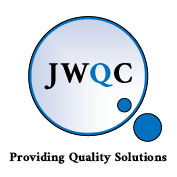Why do you Audit Your Suppliers?
We have been asked to conduct audits for a number of reasons and are conscious that you may be conducting audits for any of the reasons below.
Do you conduct supplier audits because:
The regulations say that we must?
It’s best practise?
There are project problems?
You have had supply difficulties?
You want to make sure that the supplier complies with regulation?
You want to understand potential risks to your product?
All of these reasons are valid but which of these messages are communicated throughout your organisation?
If the primary purpose for conducting audits is to understand potential risks to your product, then all other reasons should fall into place. Regulations, Standards and Best Practise guidance are in place to direct and guide organisations to adapt practises that reduce risk in general terms in order to protect patients and customers.
However, there may be other project specific risks that have to be thought about. Risk is especially important to consider when a manufacturer is to be contracted for a new product such as an Investigational Medicinal Product (IMP) for the first time. The potential impact on the patient or customer can be assessed and we can ensure that relevant mitigating actions are put in place.
So, if only one of the messages above are to be communicated through your organisation it should be that audits are conducted in order to understand the potential risks to the manufacture of your product and the consequent impact on product quality and patient safety. Mitigating actions, by either contract giver or contract acceptor, can be identified.
At JWQC we work with our clients to make sure we understand why each audit is needed and what the audit needs to achieve – the Purpose and Scope of the audit. We make sure that we have the relevant GMP expertise and other technical input to ensure that we can conduct an appropriate risk-based audit.
Our audits are risk-based, focussed on the needs of our clients and ultimately add value to the pharmaceutical manufacturing process.


